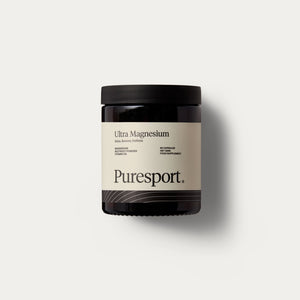Vitamin B9 (Folic Acid) Ingredient Overview
The B vitamins are a group of some of the most useful nutrients that we can supplement our diets with, but it can be a little difficult to keep track of all of them. Vitamin B9 is also known as folic acid, and we’re going to take a look at it in today’s guide. This guide will go over folic acid benefits, as well as the specific uses of folic acid for men.
What is Vitamin B9?
Vitamin B9 is often referred to as folate or folic acid, depending on whether or not it’s been manufactured. Like other B vitamins, folate is an essential nutrient, which means that the body is incapable of creating it on its own. This means that we need to get it through either supplements or through foods.
Once in the body, folate is used to create RNA and DNA, and it also helps stabilise the amino acids that we use in the process of cell division. Folate (vitamin B9) was discovered during the 1930s, and it is one of the most common medicines in the United States, with more than 8 million people being prescribed it per year.
What is Folic Acid?
Folic acid is usually the state in which supplements come because it is a lot more stable than folate, allowing it to easily be transported without it going bad or reaching a point where it is ineffective. Once it is consumed, it is converted into folate by the body, so there is little practical difference.
What is Folic Acid Good For?
Brain Health
Improved brain health is one of the key benefits of ensuring that you have enough folic acid intake. People with low folate levels are more susceptible to dementia as well as reduced brain function. This is typically the case for older adults where oxidative stress is starting to affect brain function.
Studies have shown that folate supplements can help reduce mental impairment in people with Alzheimer’s. Other studies have shown that folic acid can help reduce mild cognitive impairment’s effects, with study participants showing improved verbal IQ. The study also showed reduced blood going to the development of proteins associated with Alzheimer’s.
Reduced Risk of Heart Disease
Folic acid has also been shown to help reduce the prevalence of factors that can lead to the development of heart disease. For example, homocysteine is associated with an elevated risk of heart disease. Your levels of this amino acid are determined by your genetics as well as your nutrition.
Folate is a key part of metabolising homocysteine, and if you don’t have enough folate to metabolise it, then it may start building up in dangerous concentrations. Studies have shown a link between increased usage of folate and a reduced risk of heart disease due to additional homocysteine metabolization.
Folic Acid for Pregnancy
Folic acid is often a key part of prenatal supplements because it is a crucial part of ensuring that pregnancies go smoothly. If a mother has enough folate, then it will ensure that a child is less likely to deal with neural tube defects like anencephaly and spina bifida.
In fact, folate levels are so crucial when it comes to pregnancy that it’s recommended that women start taking folate supplements up to one month before they intend to become pregnant. This should also continue throughout the first three months of pregnancy, when neural tube development is undergoing.
When to Take Folic Acid Morning or Night?
As with most other vitamins, consistency is key and you should keep taking your folic acid at the same time of day. However, it’s usually a good idea to take it in the morning rather than the night because digestion tends to get slower during the night, which may slow down the speed with which your body processes the folate.
Is Vitamin B9 Water Soluble?
Vitamin B9 is a water soluble vitamin, meaning that it can be absorbed relatively quickly. In most cases, B9’s water soluble nature means that you can expect it to start having an effect within one week of when you start taking it, though this can vary from person to person.
Vitamin B9 Sources
One of the most common sources of folate is from leafy green vegetables, including spinach, asparagus, romaine lettuce, and broccoli. It can also be found in beans, sunflower seeds, peanuts, whole grains, juices, eggs, seafood, liver, and in fortified foods like cereals.
Folic Acid and Vitamin D
Folic acid is often included in supplements that also contain vitamin D, as both of them play a key role in ensuring that your body’s structures are able to easily be produced. In the case of vitamin D, it helps with the production of strong bones, whereas folic acid ensures that red blood cells are produced properly.







